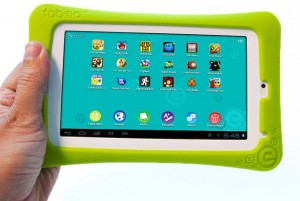By
emeadowsFebruary 11, 2013
Netscape creator Marc Andreessen, who has invested in successful ventures such as Pinterest and Foursquare, recently discussed his views on the future of commerce. The tech investor believes traditional retail stores will die off, while e-commerce stores will be the only way people shop in the future. He expects a big shift in the next three to four years, a different view from those who suggest innovation in e-commerce is slowing. Continue reading Netscape Founder Predicts the Death of Traditional Retail
By
emeadowsFebruary 8, 2013
The U.S. Patent & Trademark Office granted Amazon a broad patent that covers a “secondary market for digital objects,” according to The Hollywood Reporter. “According to the text of the patent, which Amazon first applied for in May 2009, digital objects not only include e-books, but also ‘audio, video, computer applications, etc.’ that are purchased from an original vendor.” Will a new market for used digital content have legal implications? Continue reading Legal: Amazon Granted Patent Regarding Used Digital Content
By
David TobiaFebruary 7, 2013
Amazon will release its own virtual currency, Amazon Coins, in May. Each coin will be worth a penny and will allow Kindle Fire customers to purchase apps, games and in-game items. Amazon will maintain its 30 percent revenue draw on all purchases made with Amazon Coins. While Amazon plans a small initial launch, some speculate customers could one day use Amazon Coins to purchase e-books, digital music and other products. Continue reading Will Amazon Virtual Currency Reach Beyond Apps and Games?
By
David TobiaFebruary 7, 2013
Entrepreneur Yoarv Lorch’s newest enterprise hopes to disrupt what he views as an antiquated system of book sales. Total Boox offers book payments by the page, rather than paying for the entire book up front. Lorch argues people often purchase a book on a whim and then realize they do not like it after a few pages. When books had to deal with publishing and distribution costs the advanced payment method made sense, but may not in the world of e-books. Continue reading Total Boox Offers New Pay-As-You-Go E-Book Reading Service
By
David TobiaFebruary 4, 2013
Amazon has begun to shift from directly selling products to customers due to its success with third party sales. The practice of fulfilling third party sales will continue to grow, and could become the entirety of Amazon’s business plan eventually. Third party sales now account for 39 percent of Amazon’s sales, and massive distribution centers show Amazon’s continued transition. Continue reading Will Amazon Make Complete Transition to Third Party Sales?
By
ETCentricJanuary 16, 2013
Marc Freed-Finnegan and Jonathan Wall left the Google Wallet team in 2012 to launch their own startup. Many thought the two would develop a rival mobile wallet, but the duo’s new venture is heading in a different direction. Called Index, the startup “is essentially offering to turn every store into the same sleek, technology-driven experience of an Apple store, where you get that one-two punch of efficient, yet tailored service,” explains Wired. Continue reading Index: Startup Aims to Personalize Your Shopping Experience
By
emeadowsJanuary 3, 2013
Amazon CEO Jeff Bezos got a “wake-up” call a decade ago, when he got word of a project at Google to scan and digitize product catalogs. “He saw it as a warning that the Web search engine could encroach upon his online retail empire, according to a former Amazon executive,” reports Reuters. That was just the beginning of a rivalry that will continue heating up in 2013. The two will compete even more fiercely in the online advertising, retail, mobile gadgets and cloud computing realms. Continue reading Are Amazon and Google on a Collision Course for 2013?
By
emeadowsDecember 18, 2012





